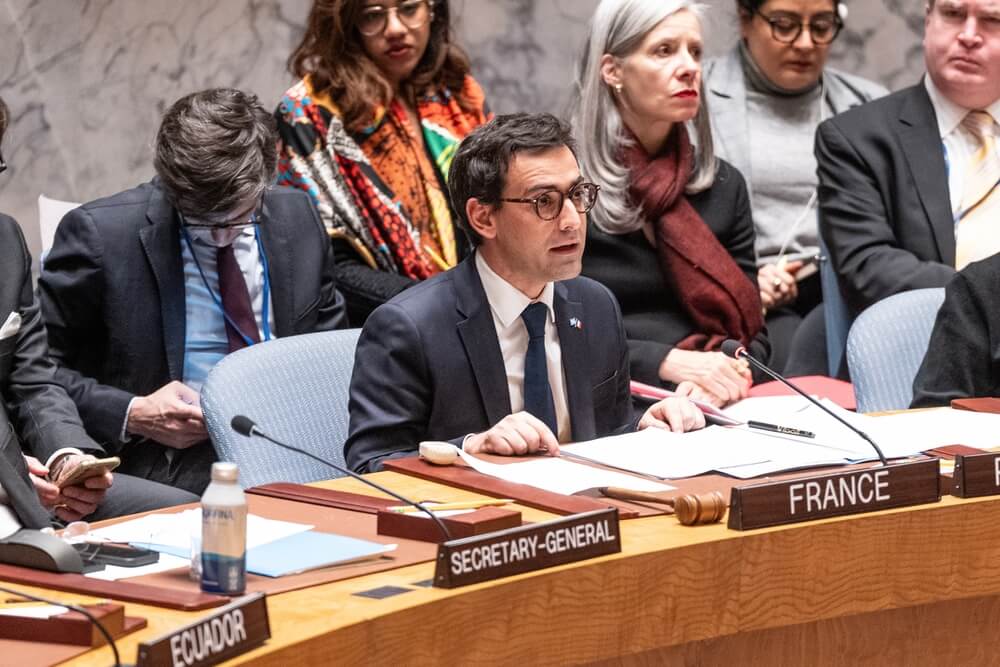The decision by Ireland, Spain, and Norway to recognise Palestine is probably not the beginning of a new wave of its international recognition, but it is a significant shift in the West's attitude towards the Palestinian issue and the Palestinian conflict with Israel.
On Tuesday, the three developed European countries will formalise their coordinated diplomatic action, signalling the start of the Euro-Atlantic partners' shift towards the recognition of the Palestinian state.
How rapidly this shift occurs will depend on the course of the Israeli-Palestinian conflict and the dynamics of the subsequent negotiations.
As the end of the Israeli military operation in Gaza draws nearer, the pressure in the international community to recognise Palestine has increased, particularly due to the rising number of civilian casualties and the humanitarian crisis triggered by this operation.
The US vetoed the initiative to make Palestine a full member of the organisation last month, preventing the UN from adopting it.
On May 11, the General Assembly passed a resolution at the UAE's suggestion, urging the Security Council to reconsider the proposal for Palestine's membership. No fewer than 143 countries voted in favour of this proposal, while only nine were against it, including the USA.
Two-state solution
The decision by three European countries to jointly recognise the Palestinian state is part of the same international effort to influence the post-war period in the Middle East.
“There will be no peace in the Middle East without a two-state solution. There can be no two-state solution without a Palestinian state,” said Jonas Gahr Støre, Norway’s PM.
Irish PM Simon Harris had an identical argument for his government's decision: “You can’t say you’re in favour of a two-state solution and not recognise the very existence of two states.”
Given that Israel has long ignored the demands of its Western allies to put an end to the civilian population's suffering in Gaza, the harsh response of the Israeli government to the recognition of Palestine by three European countries with influence in both NATO and the EU was predictable.
A whole decade has passed since a single Western country, Sweden, recognised a Palestinian state
Norway, Ireland, and Spain have long supported the Palestinians, including generous programmes to support their civilian and development programmes.
Their recognition of the Palestinian state, therefore, breaks through the Western monolith, which has shied away from such a step primarily due to the policies of the USA but also European leaders such as Germany and France.
A whole decade has passed since a single Western country, Sweden, recognised a Palestinian state. Only the Eastern European members of the EU and NATO have recognised Palestine, albeit during a period when they were still part of a political and military alliance with the USSR.
Pressure on Western partners
The steps taken by Norway, Ireland, and Spain towards recognising Palestine put the other Western partners under a certain amount of pressure. In a situation where they are highly critical of the Israeli government's behaviour, they have fewer arguments to refuse international recognition of the Palestinian state.
They have all been staunch supporters of the two-state solution, but most still believe that the time for recognition is not yet right and should be the result of a comprehensive agreement that includes the parties to the conflict.
The head of French diplomacy, Stephane Sejourne, said that the recognition of the Palestinian state "is not a taboo", but that the decision must come "at the right time".
 The recognition of the Palestinian state is not a taboo, but the decision must come at the right time - Stephane Sejourne
The recognition of the Palestinian state is not a taboo, but the decision must come at the right time - Stephane Sejourne
“This is not just a symbolic issue or a question of political positioning, but a diplomatic tool in the service of the solution of two states living side by side in peace and security,” said the French minister.
Most other Western countries share this position because they use their strategy of maintaining recognition as a form of intense pressure on both sides to find a long-term resolution to the conflict.
Norway, Spain, and Ireland have chosen a different strategy. "There is never a wrong time to do the right thing," Irish Prime Minister Harris told CNN, confronting his government's decision with partners in the West who are still wary of such a move.
Support for the agreement
Three European countries primarily target Benjamin Netanyahu's government with their pressure, condemning the harsh conditions imposed on civilians in Gaza by the Israeli military occupation.
Both the recent decisions by UN-affiliated international courts to sanction Israel for its actions in Gaza and the increasing pressure from numerous UN members to admit Palestine as a permanent member have increased the impact of this pressure.
However, the recognition by the three European states is also putting pressure on the Palestinian leadership, particularly the Palestinian Authority in the West Bank, despite the fact that it felt encouraged by this step.
Norway, Ireland, and Spain have taken a diplomatic step that will cause some disagreement among their partners in the West
Norway, Ireland, and Spain have taken a diplomatic step that will cause some disagreement among their partners in the West. Therefore, they will not sympathise with the low legitimacy, corruption, and undemocratic practices of the Palestinian Authority in the search for a long-term solution to the Israeli-Palestinian conflict.
The message from the three European countries does not represent support for the Palestinian Authority, certainly not for Hamas, but rather for a future solution based on the concept of two states coexisting and not conflicting.